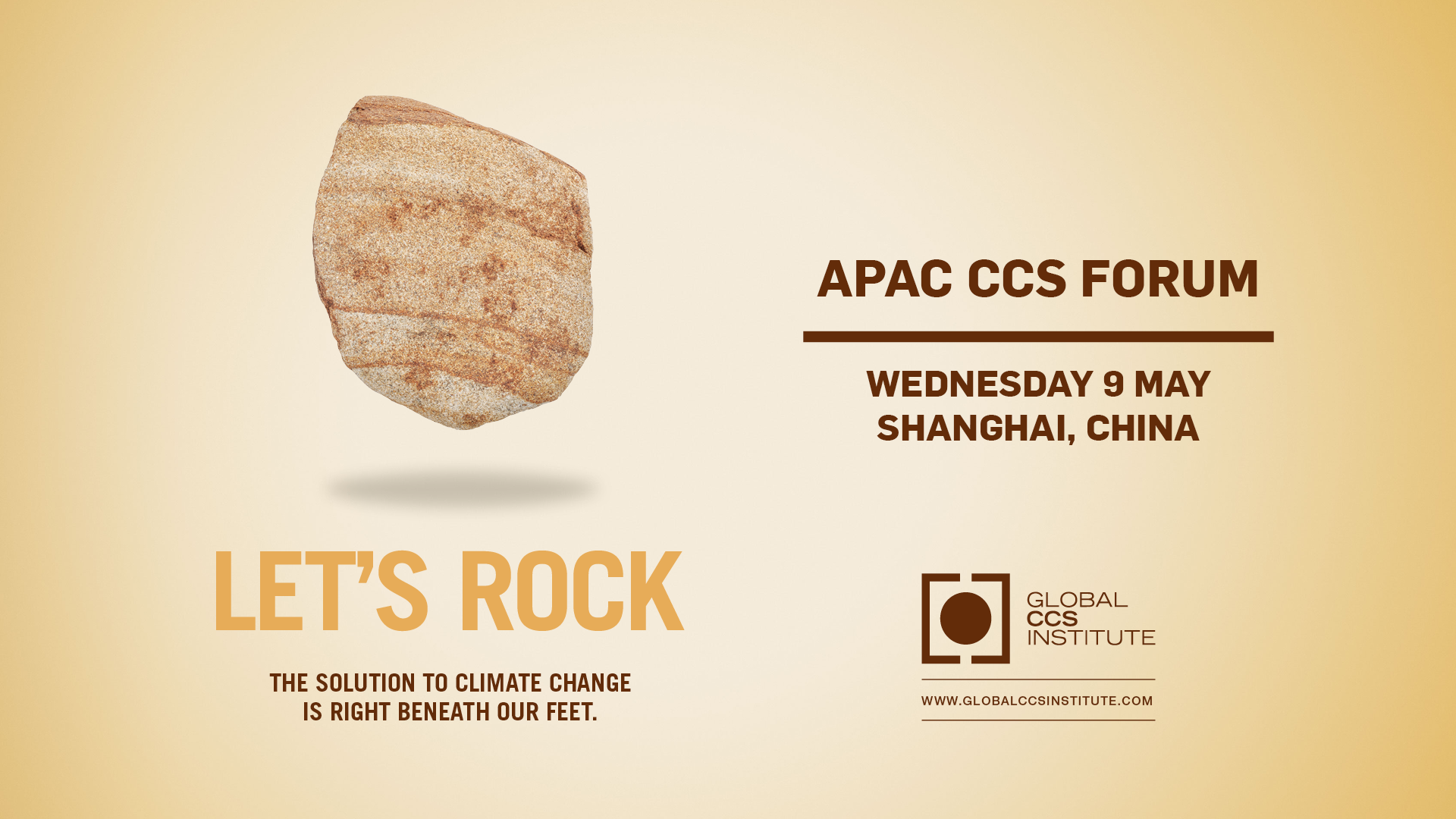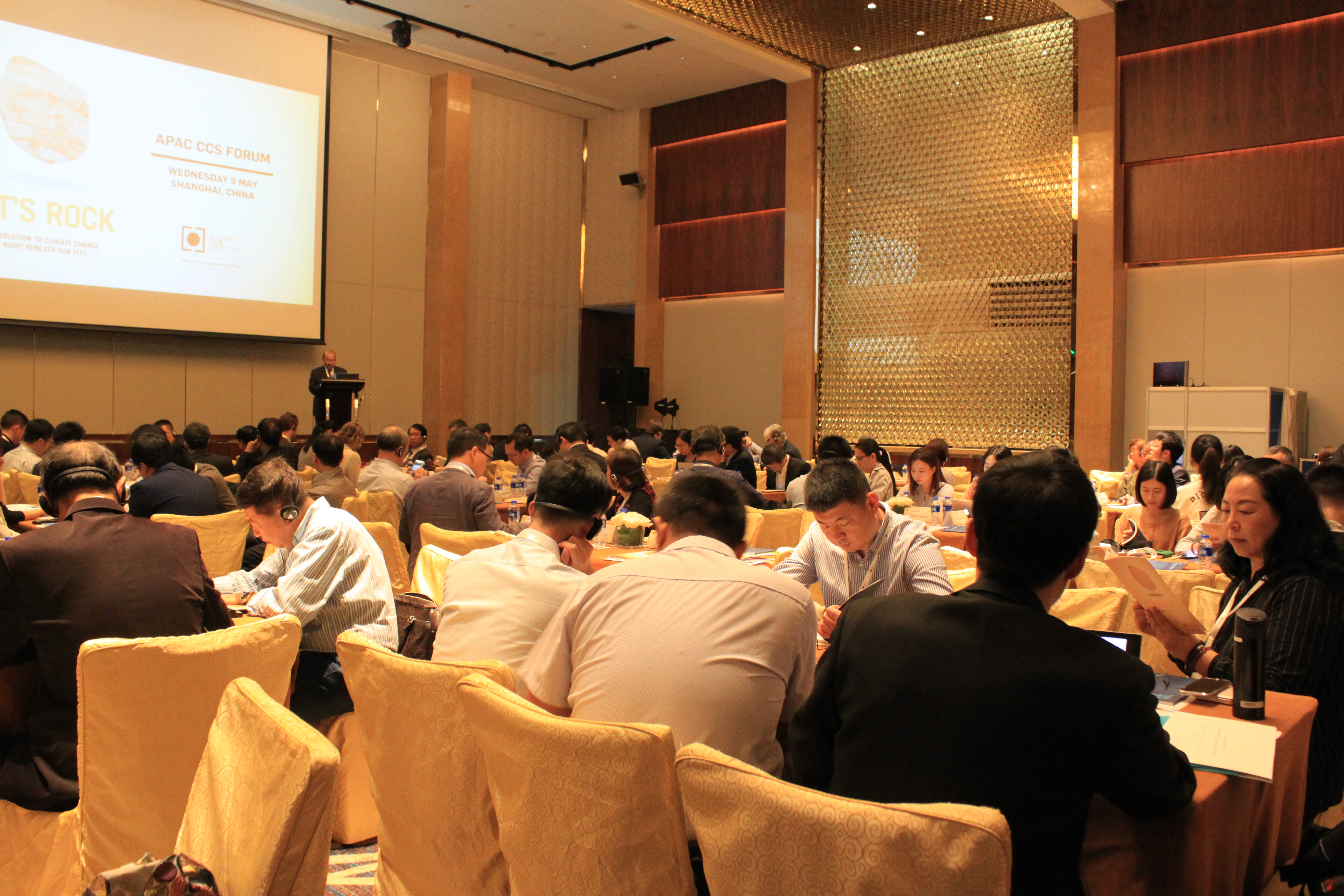Insights and Commentaries
China continues to set the pace: Global CCS Institute APAC Forum, Shanghai
18th May 2018
Topic(s): Carbon capture, Energy efficiency, Engineering and project delivery, law and regulation, Policy, Project financing, use and storage (CCUS)
 In May, the Institute hosted its first APAC CCS Forum in China, a reflection of China’s continued emphasis on CCS as vital in reducing emissions and creating a new energy highway. The Forum, which took place in Shanghai, attracted more than 150 leaders from government, academia, industry, and the climate change sector.
In May, the Institute hosted its first APAC CCS Forum in China, a reflection of China’s continued emphasis on CCS as vital in reducing emissions and creating a new energy highway. The Forum, which took place in Shanghai, attracted more than 150 leaders from government, academia, industry, and the climate change sector.
Only a month before, Chinese President Xi Jinping delivered a speech at the Boawu Steel Forum in which he stressed the need for green, low carbon, sustainable development. President Xi emphasized the need to further enhance collaboration in climate change, environmental protection, energy conservation and emission reduction.
These comments were echoed in a keynote address at the APAC CCS Forum by the President’s envoy, Department of Climate Change Deputy Director General (Ministry of Ecology and Environment), Mr Sun Zhen, who said CCS was vital in reducing CO2 emissions.
Mr Sun said his Ministry was very pleased with the support that the Institute was providing the Chinese Government and a lot of opportunities were being realised.
“The Institute has provided an international platform in which China can play a big role. The Government is placing great emphasis on CCS and has built it into its five-year plan.”
 The Australian Department of Foreign Affairs and Trade in Beijing, Minister Counsellor (Economic), Ms Elizabeth Peak, reinforced these comments in her opening address:
The Australian Department of Foreign Affairs and Trade in Beijing, Minister Counsellor (Economic), Ms Elizabeth Peak, reinforced these comments in her opening address:
“If CCS is not part of the suite of climate change solutions, it will be harder and much more expensive to meet Paris climate change targets.”
Also speaking at the Forum, International Energy Agency (IEA) Energy Analyst, Tristan Stanley, emphasised the need to deploy all technologies in meeting Paris targets.
“The rapid rate of urbanisation globally, including in large economies such as China, will underpin ongoing demand for basic materials. The growth of cities will require massive industrial input especially in steel, cement and petrochemicals, all of which emit high levels of CO2. CCS is one of the few technologies available to make deep emissions cuts to these industries.”
Global CCS Institute CEO, Brad Page said the most exciting CCS activities were taking place in China with eight facilities in rapid deployment and more than 20 others on the horizon.
This is testament to China’s support for CCS at the highest and widest levels – from national, regional and metropolitan government through to major emitters - all of whom appreciated that CCS was the only way of decarbonizing major industry.”
Mr Page reiterated these comments at a tour of Baowu Steel, the largest steel maker in China and the second largest steel maker in the world.
“As a large influential corporation, green development, or 'green steel' has been embedded in Baowu’s corporate strategy. We understand that Baowu released its first Corporate Social Responsibility Report 2017, demonstrating its great efforts in environment management and low carbon development. This report also evidenced Baowu Steel's leadership in low carbon, green development. Baowu’s collaboration with the Institute is further evidence of Baowu’s low carbon development strategy.”
The Institute continues to underscore the unique ability of CCS to eradicate CO2 emissions in industrial sectors that no other clean technology can touch. China has realized this through a variety of policy confidence measures aimed at accelerating CCS alongside broader climate change development. This includes a value placed on avoided carbon, provincial and national inclusion of CCS in five-year (economic) planning, major industry participation, and academic research to identify key opportunities.